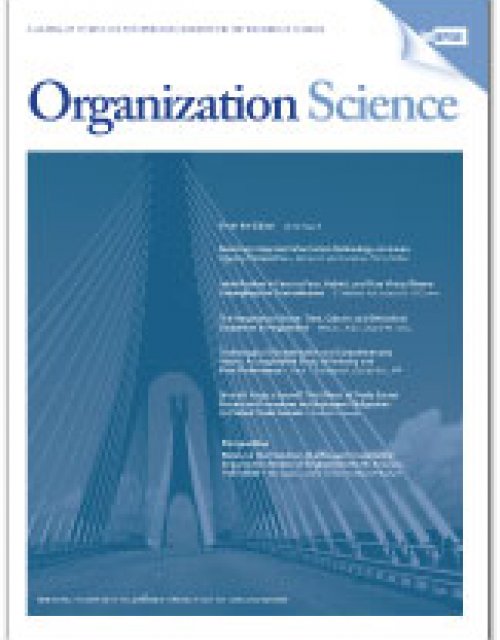Publication records
Subject(s)
Finance, accounting and corporate governance
Keyword(s)
international finance, government policy and regulation
Volume
65
Journal Pages
3–25
Subject(s)
Economics, politics and business environment; Management sciences, decision sciences and quantitative methods; Technology, R&D management
Keyword(s)
electric cars, emission, electricity, regulation
JEL Code(s)
Q42, R42
Journal Pages
131–155
Subject(s)
Human resources management/organizational behavior
Volume
8
Journal Pages
87–88
ISSN (Print)
1727-4192
Subject(s)
Human resources management/organizational behavior
ISSN (Print)
0015-6914
Subject(s)
Management sciences, decision sciences and quantitative methods
Keyword(s)
service design, service options, revenue management
Secondary Title
The Oxford handbook of pricing management
Pages
713–737
ISBN
978–0199543175
Subject(s)
Strategy and general management; Technology, R&D management
Keyword(s)
collaboration, innovation, user, communities, online
Users often interact and help each other solve problems in communities, but few scholars have explored how these relationships provide opportunities to innovate. We analyze the extent to which people positioned within the core of a community as well as people that are cosmopolitans positioned across multiple external communities affect innovation. Using a multimethod approach, including a survey, a complete database of interactions in an online community, content coding of interactions and contributions, and 36 interviews, we specify the types of positions that have the strongest effect on innovation. Our study shows that dispositional explanations for user innovation should be complemented by a relational view that emphasizes how these communities differ from other organizations, the types of behaviors this enables, and the effects on innovation.
© 2012 INFORMS
Volume
23
Journal Pages
988–1007
Subject(s)
Technology, R&D management
Keyword(s)
intellectual property, licensing, financing, innovation, strategy
The importance of intellectual property (IP) rights for commercializing innovation is well established. Moreover, separate streams of literature have shown a positive relationship between IP rights and both product licensing and third-party (especially VC) financing. However, since raising third-party finance enables an innovating firm to continue commercializing its innovation alone, it is not clear how obtaining IP rights will impact the choice between licensing product rights and continuing to commercialize the product alone. This paper attempts to reconcile these two alternative effects of obtaining IP rights and the implications for commercialization strategy. The paper empirically examines the relationship between the status of the primary patent covering an innovation and whether the innovating firm’s licenses its innovation or raises external finance. The results show that while filing and allowance of the primary significantly increases the likelihood of raising finance at certain stages of the firm/product’s development, and thereby enable the firm to delay licensing, obtaining patent rights has a much larger, positive effect on licensing. While it is not possible to identify the drivers of these different effects from the empirical analysis, the theory suggests that patent filing may act as a signal to financial investors that enable early-stage firms to raise finance, but ultimately they are most valuable as appropriability mechanisms for facilitating financing.
View all ESMT Working Papers in the ESMT Working Paper Series here. ESMT Working Papers are also available via SSRN, RePEc, EconStor, and the German National Library (DNB).
Pages
40
ISSN (Print)
1866–3494
Subject(s)
Ethics and social responsibility
Secondary Title
Sustainability matters: Why and how corporate boards should become involved Research Report R814818118RR
Pages
71–78
Subject(s)
Economics, politics and business environment
Volume
10
Journal Pages
1–11
Subject(s)
Economics, politics and business environment
Keyword(s)
information externality, social learning, strategic waiting, delay, information cascade
JEL Code(s)
D62, D83
We study a two-player investment game with information externalities. Necessary and sufficient conditions for a unique symmetric switching equilibrium are provided. When public news indicates that the investment opportunity is very profitable, too many types are investing early and investments should therefore be taxed. Conversely, any positive investment tax is suboptimally high if the public information is sufficiently unfavorable.
With permission of Elsevier
Volume
56
Journal Pages
1220–1240
